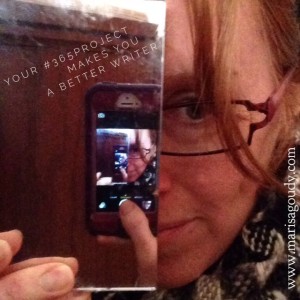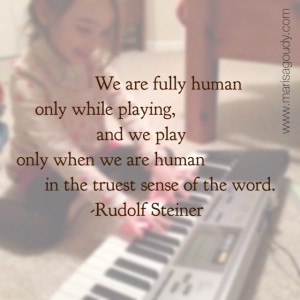How a 365 photo project makes you a better writer
 The more pictures you take, the better writer you’ll become.
Yeah, right, you say. Writing makes you a better writer, not messing around with photo filters and getting lost in the endless Instagram dinner plate captures.
The more pictures you take, the better writer you’ll become.
Yeah, right, you say. Writing makes you a better writer, not messing around with photo filters and getting lost in the endless Instagram dinner plate captures.
From more than a year’s experience of daily shooting and posting, I can promise you that the process really does take you closer to your writing goals - especially when it comes to writing for the digital universe.
Five Things Writers Gain From a 365 Photo Project
- Discipline: In order to become the sort of writer you want to be you need to practice. Once you establish that you can do something every day, like taking a picture and sharing it to social media, you prove to yourself that you can do anything - including writing every day.
- Visibility: Being a writer isn’t just about writing - at least not if you want people to read your stuff. Daily images boost your overall online profile, even if they aren’t each perfectly aligned with the work you ultimately wish to promote. In 2014, I participated in the #365feministselfie project. Did all those pictures of my kids and me tell you about what I can do as an author and a writing coach? No, but they told you a lot about me and that’s what will really help potential clients pick me and future readers get excited about my books.
- Brevity: Photo projects aren’t just about the visual. The picture is worth a thousand words, of course, but the words you use to introduce and contextualize the image still matter. One of the most important skills for online writing is the ability to be engaging and yet concise. When you're limited by what your thumbs can comfortably tap into your phone and you know shouldn’t say more than your distracted viewers will take in, you learn the skill of the the short and sweet. (Full disclosure: I have trouble with this and often write wicked long captions because they're still quicker than a blog post!)
- Outliers: To paraphrase Alice in Wonderland, you’ve surely imagined six visionary creative projects before breakfast, but they’re all outlier ideas you have to dismiss. They're “distractions” from your “real” project. What if your daily photo snap could be a five minute journey into those excess ideas? Your satisfying the muse and you're cataloging those ideas for later.
 Play: Though defined as “pleasurable and apparently purposeless activity," we know that play is so much more than that. It is what keeps us vibrant, engaged, and flexible on every level. You’re not a photographer. Your pictures will only occasionally be brilliant. Allow that and find delight as you mess around with something you don’t have to be good at.
Play: Though defined as “pleasurable and apparently purposeless activity," we know that play is so much more than that. It is what keeps us vibrant, engaged, and flexible on every level. You’re not a photographer. Your pictures will only occasionally be brilliant. Allow that and find delight as you mess around with something you don’t have to be good at.
Is there a downside to devoting a few minutes a day to a 365 project?
I'm an unabashed #365project devotee and I can't imagine I'll ever quit, the practice has so many benefits. If I stretch, I can find one downside though...
I take pictures to illustrate the story going on in my head, whether its actually from a piece of fiction I’m working on or part of my professional or personal story.
My images likely suffer since I’m grabbing the phone to snap a pic to explain a work in progress rather than seeing the magic of the moment or object itself. Taken out of context, the picture may not be all that meaningful to your audience (and you’re practicing brevity in those captions and don’t want to write a novel about each pic).
But that is the joy of a 365 project - you always have a chance to make a distinctive piece of art tomorrow! And again, simply showing up every day and creating a 365 piece puzzle has a magic of its own for your visibility. Every puzzle piece isn't meant to stand alone.
But really, should you just do a #Write365 project?
Yes, you could always do a 365 writing project… It would help you build discipline and visibility and maybe brevity, but there’s a great chance you’ll lose out on the play and the chance to explore those outlier ideas.
My project for the year is called #365SovereignReality. Follow me on Instagram or Google+ for a window into my 2015 as I discover what it means to “become sovereign in my own reality.”
